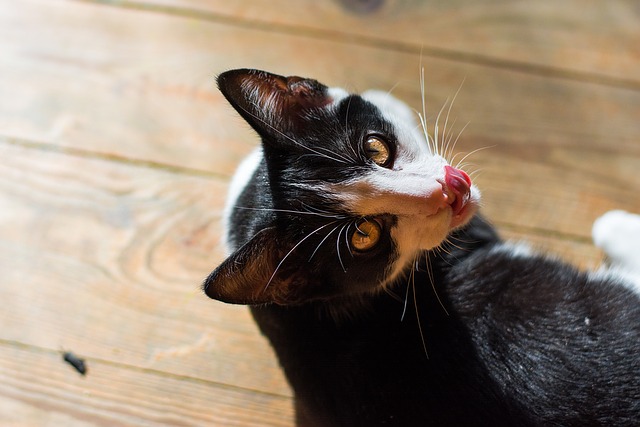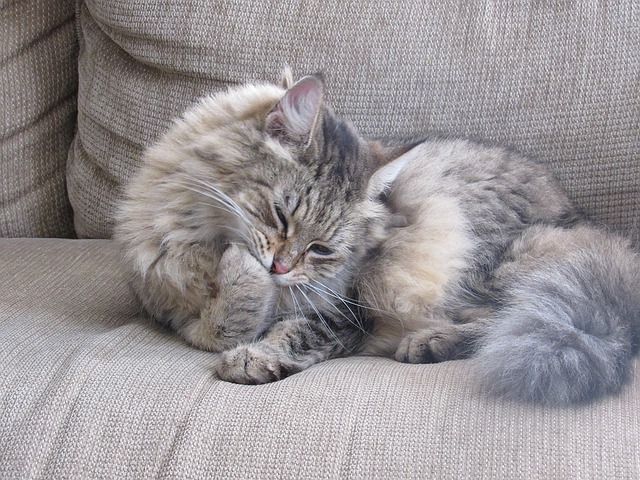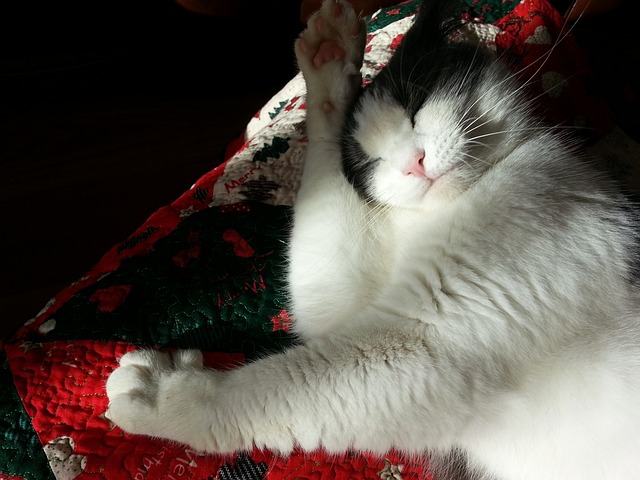Does your cat seem to spend more than half of her waking hours grooming herself? She may not resort to so much grooming when you’re around, though. Maybe you’ve noticed that she’s developing bald spots. These are signs that she may be over-grooming.
Cats spend 30-50% of their life grooming themselves, but more than that may be problematic. What are some of the reasons that cats take up this behavior? Is it dangerous? Does it require a trip to the vet? How can you stop it? Here’s what you need to know about why cats resort to over-grooming.

#1 – Itching
Cats may respond to itchiness by licking, chewing, or pulling out their fur. Itchy cats tend to over-groom their entire bodies. A whole variety of things can cause your cat to itch, from parasites (like fleas or mites), to allergies (environmental or food), to dry skin.
If you think itchiness is causing your cat to go crazy with her grooming routine, you can try putting her on a flea preventative, changing her food, or adding a supplement to help prevent dry skin. However, a trip to the vet may be able to help you narrow down the causes for your cat’s itchiness.

#2 – Pain
Pain will often cause localized over-grooming in the area that hurts. Over-grooming one particular area may indicate anything from anal sac impaction to back pain. If your cat seems to be “mowing down” the hair in one area of her body, a trip to the vet is probably warranted.

#3 – Stress, Anxiety or Boredom
Cats are very sensitive creatures who tend not to respond well to stress or changes within the household. Since grooming can be a self-soothing mechanism, over-grooming can be a sign that your cat is under a lot of stress or suffering from anxiety or boredom.
Related: 8 Best Self Cleaning Litter Boxes for Cats
Try maintaining as strict of a feeding schedule as possible; make sure her food bowl, water dish, and litter boxes are always clean; and provide lots of high places for your cat to perch and feel safe looking down on the world to help reduce her anxiety.
You also want to make sure you cat feels safe, loved, and entertained, so be sure to spend plenty of time playing with and loving on her. If these measures don’t help after a month or two, a trip to the vet may be in order to rule out health problems. Your vet may also recommend an anti-anxiety medication for your cat for a brief period to help her relax.
(H/T: Healthy Pets, WebMD Pets)
